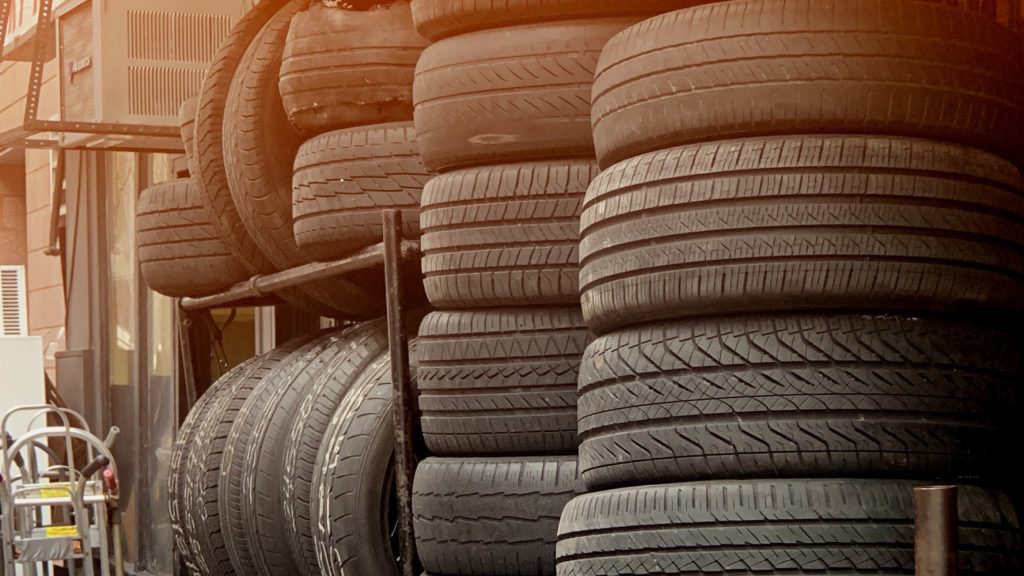When you consider the fact that the only thing between you and the road, moving at 100km/h beneath you, is your vehicle’s tyres, you quickly realise their importance. It goes without saying that replacing those tyres cannot be overlooked.
Maintaining tyres in good condition prevents aquaplaning and increases the car’s grip on the surface as well as the driver’s control on the road. It is not only illegal to drive a car with worn-out tires but also extremely dangerous.
Driver training includes an essential section on basic mechanics that instils skills on how to handle car maintenance. The importance of pre-inspection is often emphasised, which includes checking the tyres for pressure, cracks or foreign material.
The following article covers everything you need to know about when, how and why you should change your car’s tyres.
When should you replace your car’s tyres?
A time comes when there is a need to change your car’s tyres. Several reasons bring about this need to change and being able to spot when to replace tyres is crucial. Some of these factors include the driving style (e.g. suburbs or motorway), kilometres covered, storage and climate. Such factors contribute to a faster rate of tyre wear and tear, which necessitates replacement.
According to Tryoola, other factors that lead to tyre ageing that drivers might overlook include; overloading, tyre pressure, over speeding, wheel alignment, and driving on bad roads. Hence, drivers need to be extra responsible to enhance the durability of their car’s tyres.
There are clear signs that your car tyres are ageing and would require your urgent attention to change. According to the law, tyres should have a minimum tread of 1.5mm and a maximum span of five (5) years. If you have used the same tyres for five years, you might need to consider replacing. Modern tyres come with wear markers around the circumference. If the tyre treads are flush with the marker, then this is a clear sign that the tyres need replacing.

How long do car tyres last?
There is no specific answer on how long a tyre will last because there are several factors that will speed up the rate of wear and tear. However, the best way to get an appropriate answer is to check the warranty from the manufacturer. All in all, experts recommend a maximum life span of six years for a car tyre. They believe that over this period, the tyre will lose its performance drastically due to the effects of water and direct sunlight.
On the other hand, while maintenance contributes to a long lifespan of the tyre to a period of up to six years, it is recommended to change your tyres after five years. Due to the increased quality and better technology, tyre today will last longer than older tyres. Hence, it is critical to remain within the legally recommended lifespan of five years.
What pressure should car tyres be?
You can easily determine the correct pressure for your car. Tyre pressure is measured in a standard unit known as the Pounds per Square Inch (PSI). You can find information about the tyre pressure on the maintenance sheet usually placed near the driver’s door. If this is hard to find, you can check in the car manual. If you cannot find the information, a general rule for saloon cars is to maintain pressure between 30-35 PSI.
Inadequate tyre pressure reduces the driver’s control and stability of the car on the road. Over-inflating the tyres causes a bouncy effect en route hence causing ill-handling of the car. On the other hand, underinflating the tyres increases friction between the tyre and the road surface, thus speeding up wear and tear.
Overinflating your tyres also creates unusual wear and tear at the centre of the tread. Additionally, under-inflated tyres decrease the car’s fuel economy. Experts suggest that for every 3 PSI of underinflation, the car loses its fuel economy by 1%. For more guidance about how to pump up car tyres, information can be found easily online.
Where/how to inflate your car tyres
The most common places where you can inflate your tyres is at a petrol station. It is recommended that drivers should check tyre pressure every time they stop to fill up their fuel tank. Another place where you can inflate your tyres is at a service station bay.
Inflating a car is an easy task that every driver should be able to do for him or herself. Also, note that it is essential always to check the pressure when the tyres are cold. Hence, if the car has been in motion, you need to park it for some time in the shade. To inflate the tyres, attach the pressure hose to the valve on the rims of your wheel and the pressure machine will do the rest. You should do this for all four wheels.

How to rotate car tyres
It is essential to ensure uniform wear and tear on all the tyres, to get the best performance out of the tyres. Tyres tend to wear out at a different rate due to many reasons, but in most cases, the front wheel tyres wear out faster because they bear all the weight of the vehicle when braking.
Tyre manufacturers and other experts recommend tyre rotation after about 10,000 Kilometres. There are four types of rotations; straight rotation, four-wheel rotation, cross rotation, and five tyre rotation. Professional mechanics are very familiar with all these kinds of rotations and are better equipped to do your tyre rotation.
How much are car tyres?
Tyres have distinct prices, just like any other product since the quality, treads, and manufacturers are different. If you are wondering, ‘what tyres fit my car’ it is best to ask a mechanic. The main factors that affect the cost of a tyre and tyre replacement are the size of the tyre, the brand, and the type of vehicle. Tirebuyer estimates the cost of a new tyre to range from $50 to $150 for cheap tyres. Moderately priced tires range between $100 and $300 while expensive tyres and often off-road tyres range from $300 to $1000.
Which tyres are the best?
You can tell a good tyre from its durability, handling in wet weather, and stopping ability. You should always find out which are the best tyres for your car before buying or deciding to change. Professional mechanics have experience with most of the big tyre brands and will be in a better position to recommend the best tyres. However, some of the best performing tyre brands include; Michelin, Pirelli, Bridgestone, Yokohama, Hankook, Toyo Tires, Good Year, Continental, and Dunlop.
From this discussion, it is clear that the right tyre is critical for a smooth drive on the road. The law requires every driver to ensure a good tyre tread of 1.5 minimum depth; otherwise, it is rendered unroadworthy. Also, ensure that your tyres have a maximum lifespan of five years. Good tyres increase the driver’s control of the car on the road and minimise the chances of causing an accident.
Sell Your Car For Cash Today
On the spot valuation and cash payment, all vehicles considered


